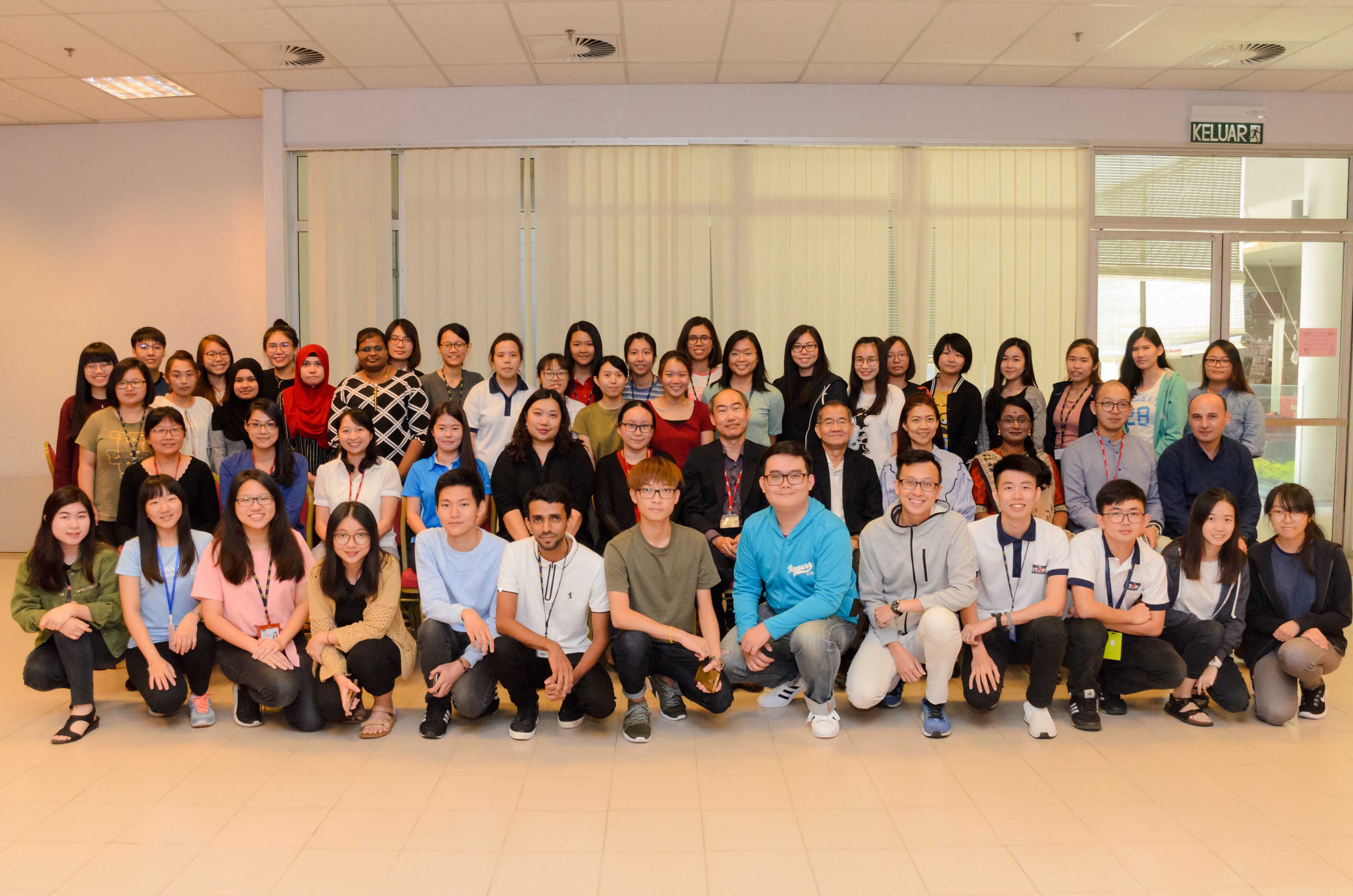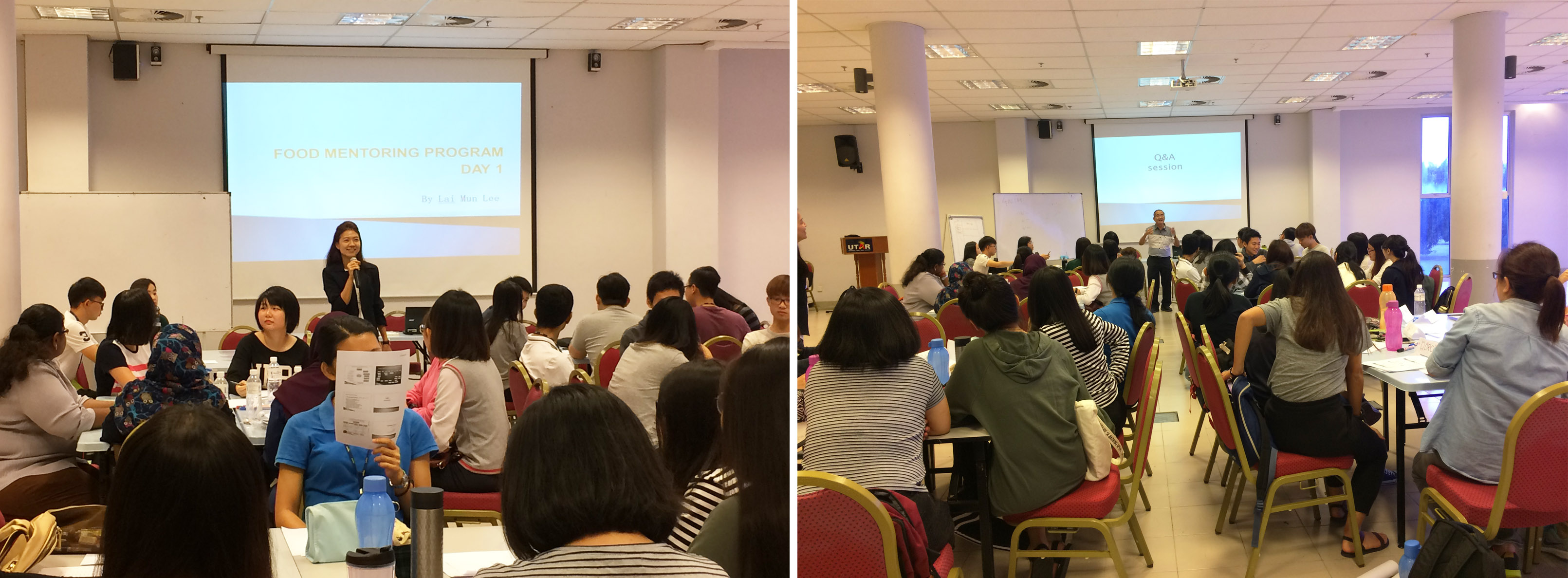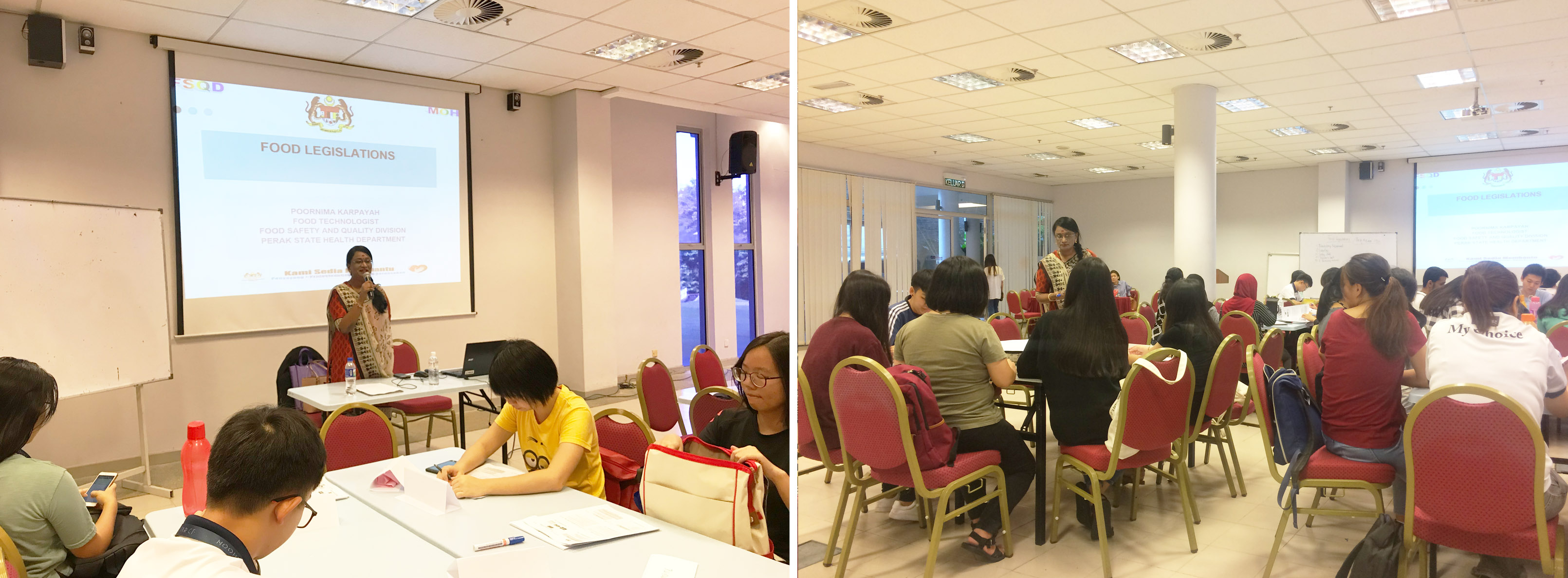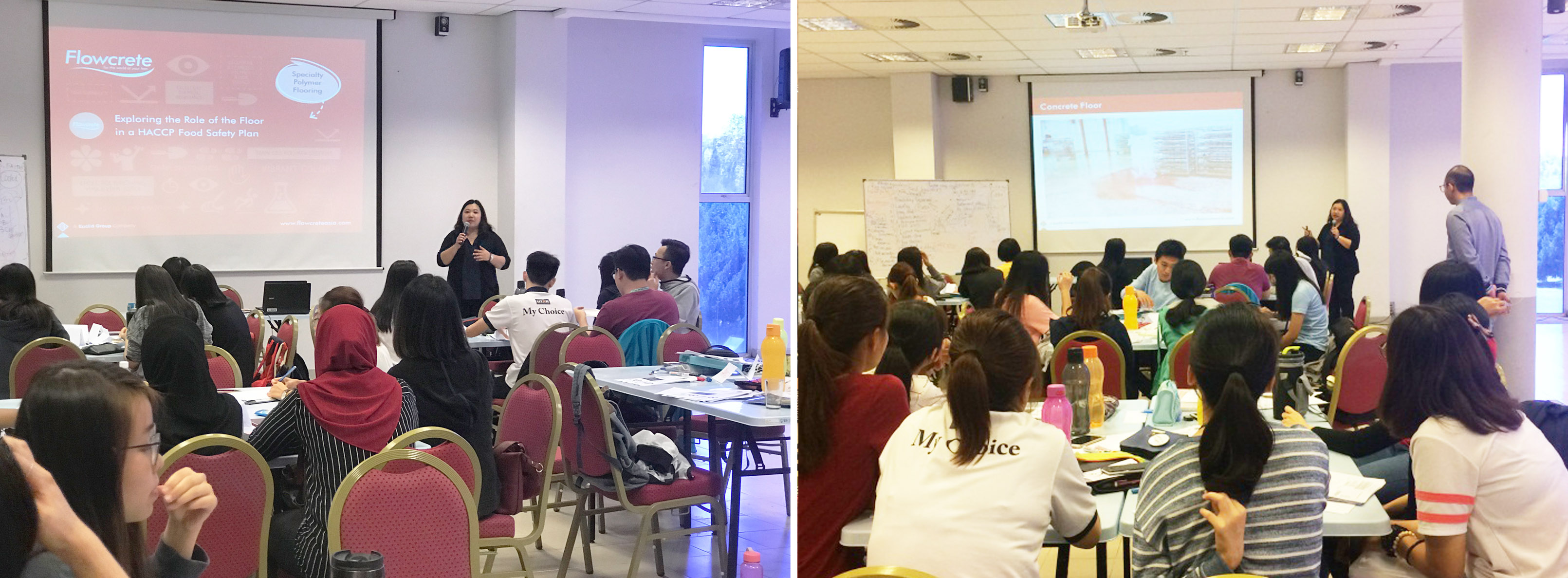

Speakers and participants posing for a group photo
The Faculty of Science (FSc) organised a food mentoring programme titled “Food Safety Awareness Training” from 29 to 30 March 2018 at the Kampar Campus.
Present at the training were FSc Dean Assoc Prof Dr Lim Tuck Meng, Department of Agricultural and Food Science Head Dr Ong Mei Kying, and FSc staff Dr Ali Yassoralipour, Chung Kok Heung, Dr Lye Huey Shi, Dr Tan Yen Nee and Dr Chang Ying Ping. External speakers included Food Consultants from AC Lam Enterprise Lam Ah Chye and Lai Mun Lee, Food Technologist from the Food Safety and Quality Division of Perak State Health Department Poornima Karpayah, and Ng Siew Leng from Flowcrete Asia Sdn Bhd.
The participants consisted of UTAR students from the Bachelor of Science (Hons) Food Science and Bachelor of Science (Hons) Biotechnology, and industry players from Liang Kee Farming Sdn Bhd, FY Food Processing Sdn Bhd, Bidor Kwong Heng Sdn Bhd, and Se Woh Sauce Factory. Apart from enabling academics to form useful links with the industry, the training also aimed to help food industries to upgrade their hygiene and food safety operations.
The first speaker, Lai, explained the concept of good manufacturing practice (GMP). She explained that GMP is a set of procedures that ensure products are manufactured to meet a certain quality and safety requirement. These procedures will describe the methods, equipment, facilities and controls for all manufactured goods. Lai further explained the factors involved when setting up a GMP programme, namely premises, equipment and utensils, supplier control, personnel, cleaning and sanitation, chemical control, storage and distributions, pest control programme, and product recall and customer complaint.
In her later session, Lai spoke about Hazard Analysis and Critical Control Point (HACCP) system, in which she explained about the food system that identifies, evaluates and control hazards to ensure food safety. She also conducted interactive group activities for the participants.
“HACCP is vital to an organisation, especially those in the food industries because obtaining HACCP status will increase the confidence of consumers towards the product and quality; helps reduce the reliance on end-product testing; and reduce the losses by preventing product withdrawals and stock losses,” said Lai.
She also introduced the seven principles of HACCP to the participants, which were (1) Identifying hazard and establishing control measures; (2) Identifying Critical Control Points (CCP); (3) Establishing CCP critical limit; (4) Establishing CCP monitoring system; (5) Establishing CCP corrective actions; (6) Verifying HACCP to make sure it is working effectively and (7) Document Control. With Lai, participants also understood the types of hazards, the types of pathogenic bacteria carried in food, types of physical, chemical and biological hazards.
The second day saw the session held with Poornima, who enlightened the participants with the Food Act 1983, Food Regulations 1985, and Food Hygiene Regulations 2009. She elaborated further on the Food Hygiene Regulations 2009 and mentioned that its objective is to provide an infrastructure to control the hygiene and safety of food sold in the country and to protect public health.
“Specifically, the Food Hygiene Regulations 2009 is important as it ensures food premises are hygiene, food handlers maintain personal hygiene and avoid food contamination and equipment is clean and suitable. This regulation also facilitates, strengthens and harmonises the enforcement activities; and ensures that food manufacturers implement food safety assurance programmes,” said Poornima.
The participants also benefitted from the talk on general food labelling, when the speaker shared information on the definition of the food label and its importance. She mentioned that food labels provide information about ingredients, nutrition, preparation and storage methods, to avoid fraud, to ensure fair practices in food trade and to assist authorities in cases of product recall. Under food labelling, participants understood the general labelling requirements, which are language used, particulars in labelling, form and manner, size and colours of font, date marking, and packing on retail premises.
Ng on the other hand spoke about the types of hazardous floor such as, porous floor, poor surface preparation, and grout lines between tiles or bricks. She also suggested for floors to be toxic free and have sufficient chemical resistance. She emphasised on the need for floors to also have proper surface drainage to prevent water pooling and minimise bacteria trap.
“The workshop was very enlightening and I gain added knowledge. I have also understood better about the Food Act and Food Regulations. I believe all industry should attend such workshop as it is very helpful for the company,” said participant Chong Zhe Hui.
Meanwhile, participant Ranjini Morogan mentioned, “Such training or workshop is important especially for the people from the industry, because these regulations and law must be practised accordingly in order for them to produce safer food for their consumers.”
Another participant Sherah Mohd Jan likewise agreed with Ranjini and said, “Attending the training is a good exposure to what GMP is and how the regulations should be followed. We will also be updated of any new additional regulations as well.”
The workshop came to an end with Dr Lim giving his closing remarks. He said, “Thank you all for your participation. As we know, food safety is very important and with the participants attending this workshop, it will increase your knowledge on food safety and enhance these food safety practices among the food industries. With food safety practiced, consumers will also get better food and quality food. I hope we can also spread this good knowledge to the community and share with them on the need to practice food safety.”
A token of appreciation was presented by Dr Lim to the speakers. All participants also received a certificate of participation.

From left: Lai speaking about GMP and Lam quizzing the participants

Poornima explaining about the Food Act 1983

Ng explaining the suitable flooring for food factories
© 2019 UNIVERSITI TUNKU ABDUL RAHMAN DU012(A).
Wholly owned by UTAR Education Foundation Co. No. 578227-M LEGAL STATEMENT TERM OF USAGE PRIVACY NOTICE